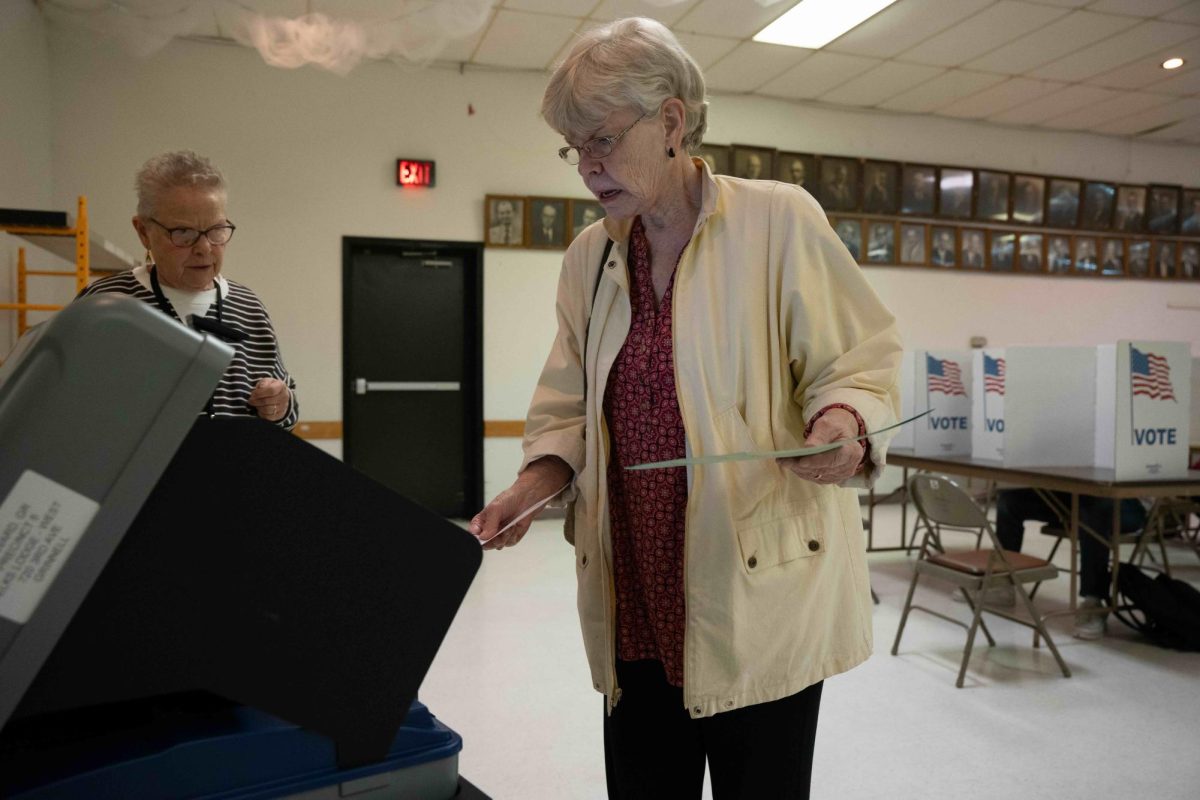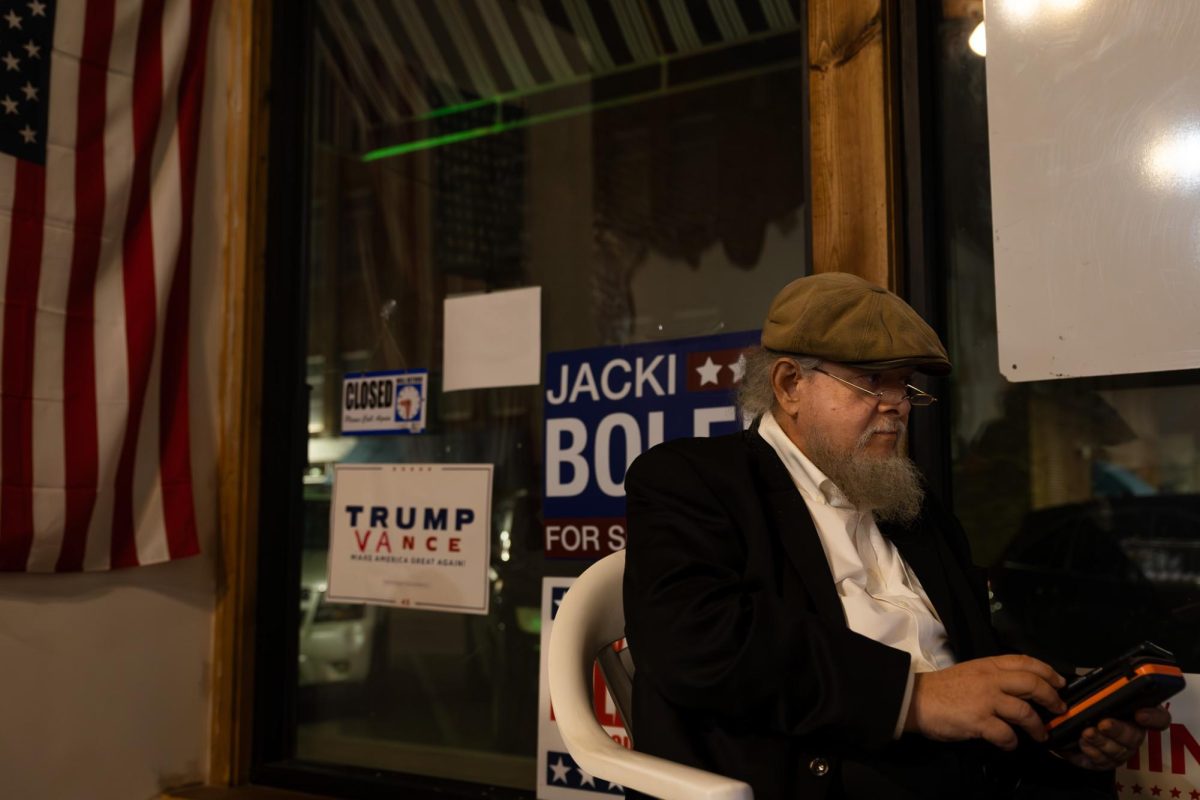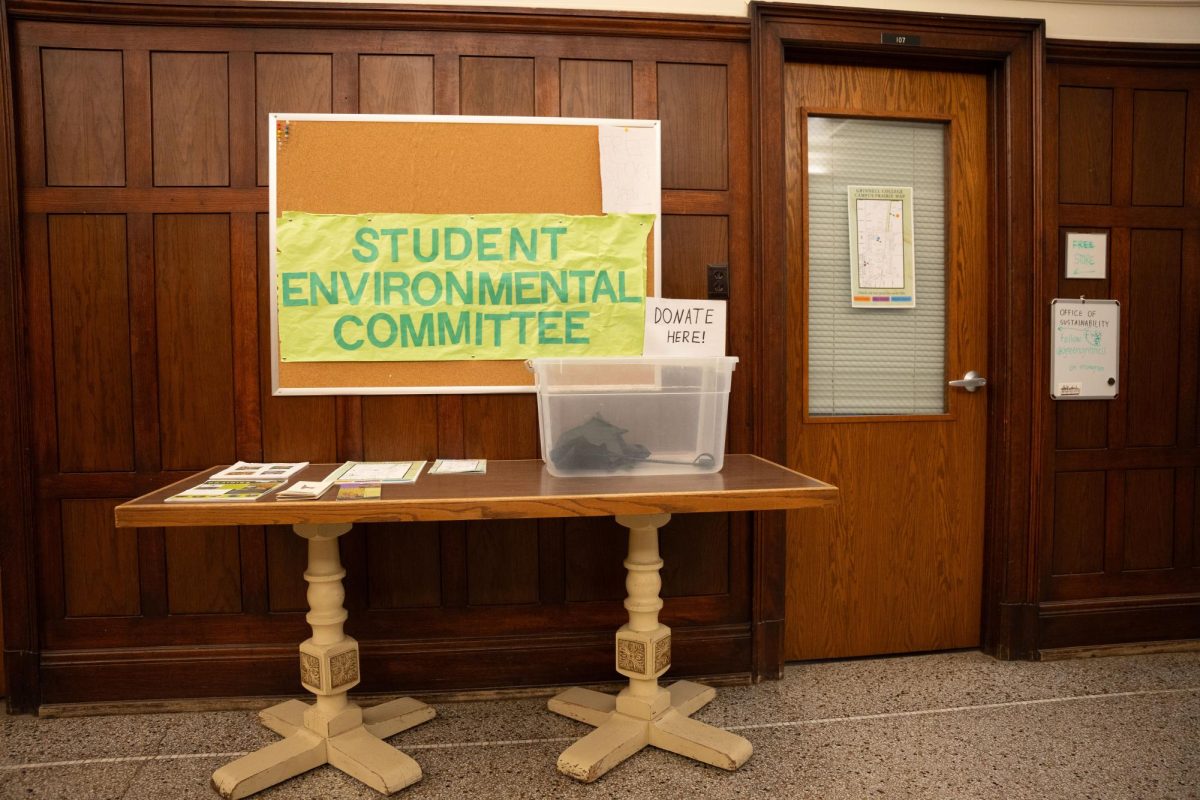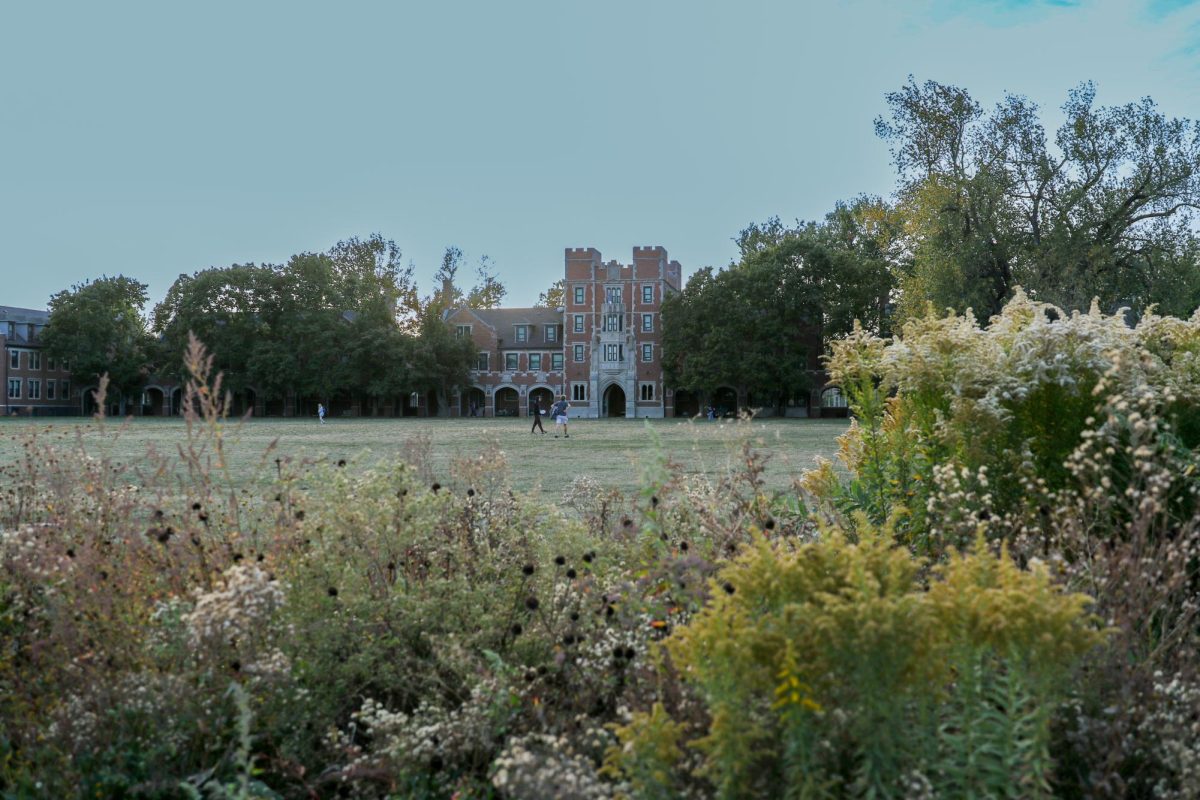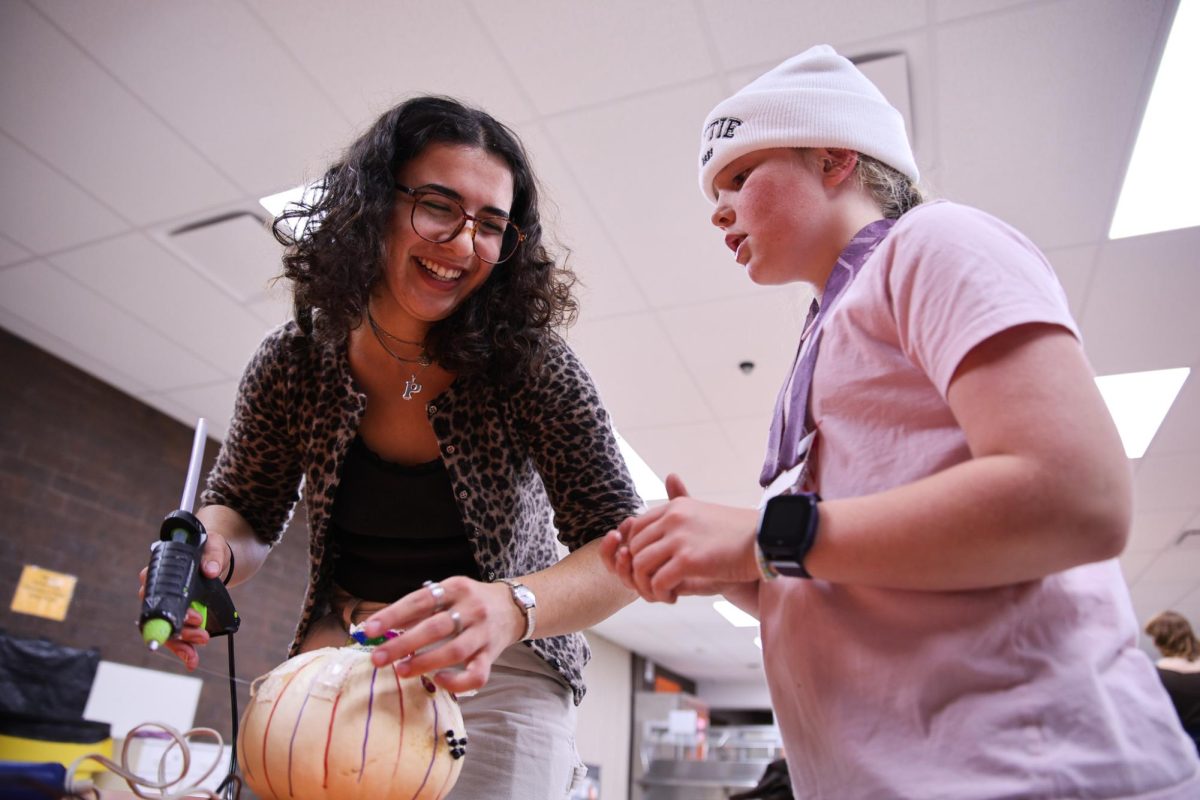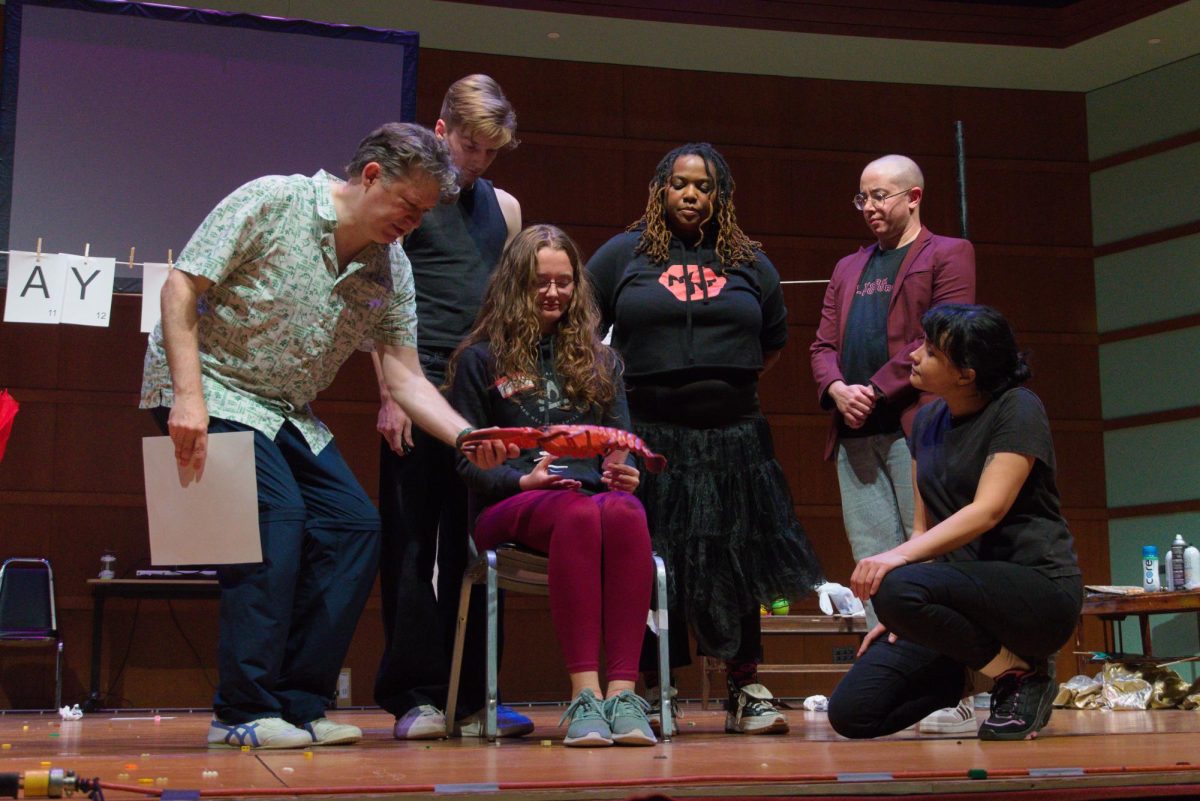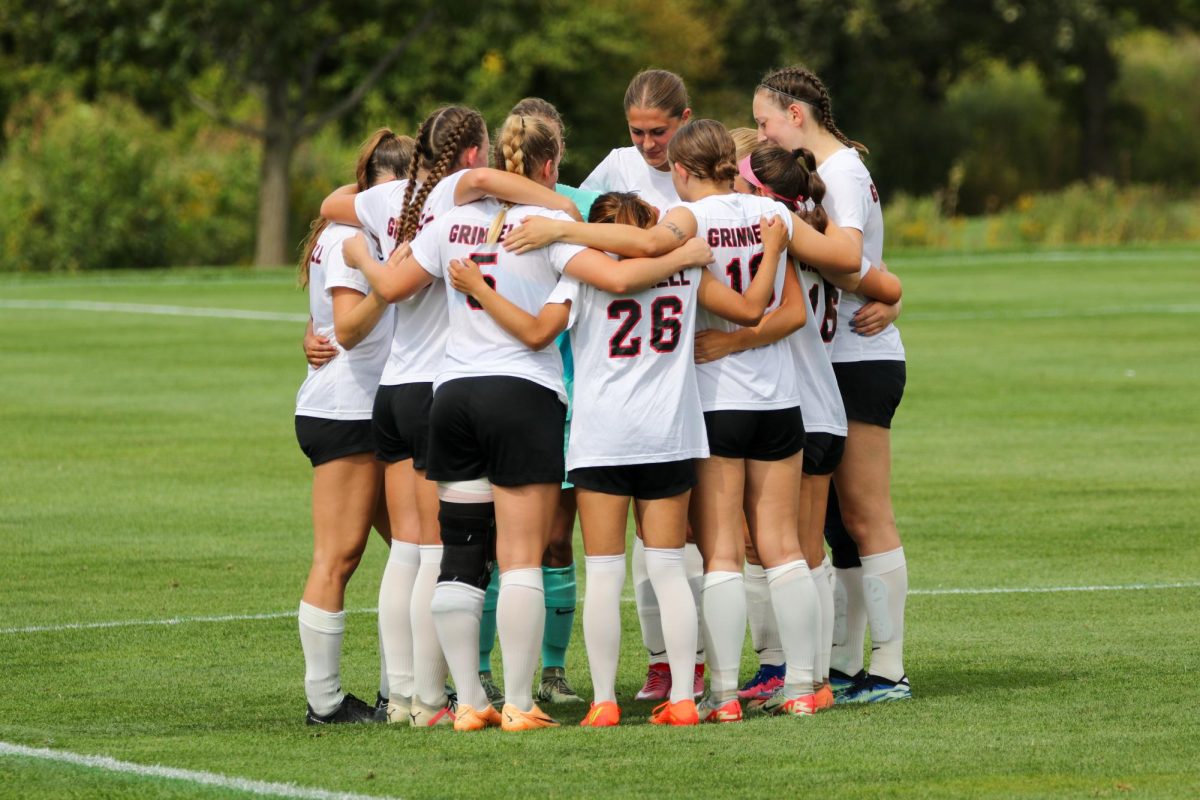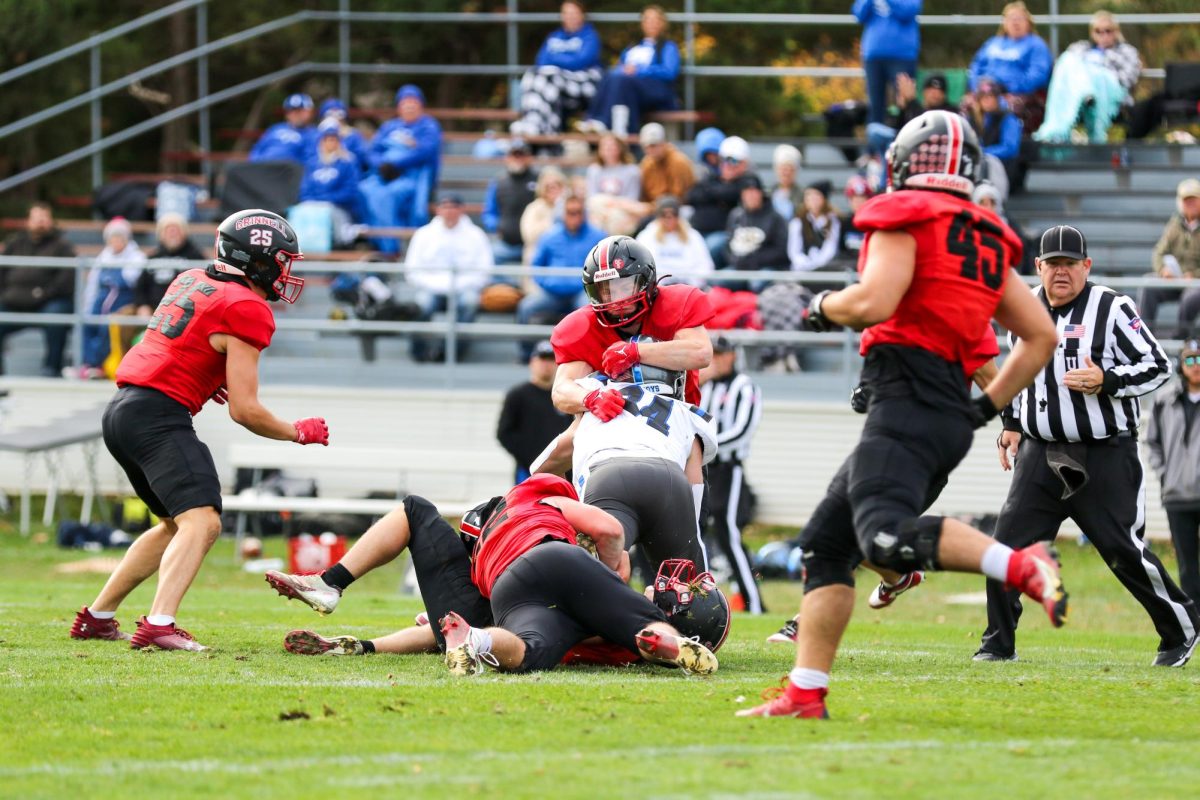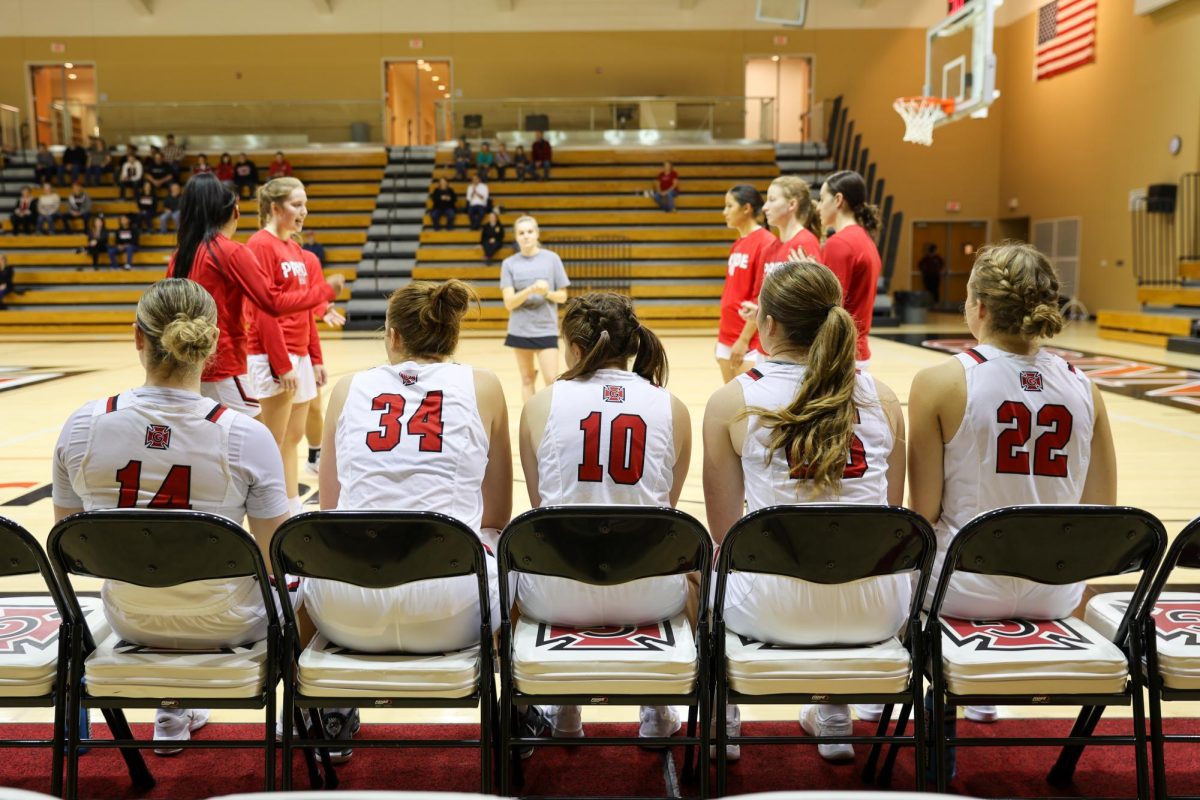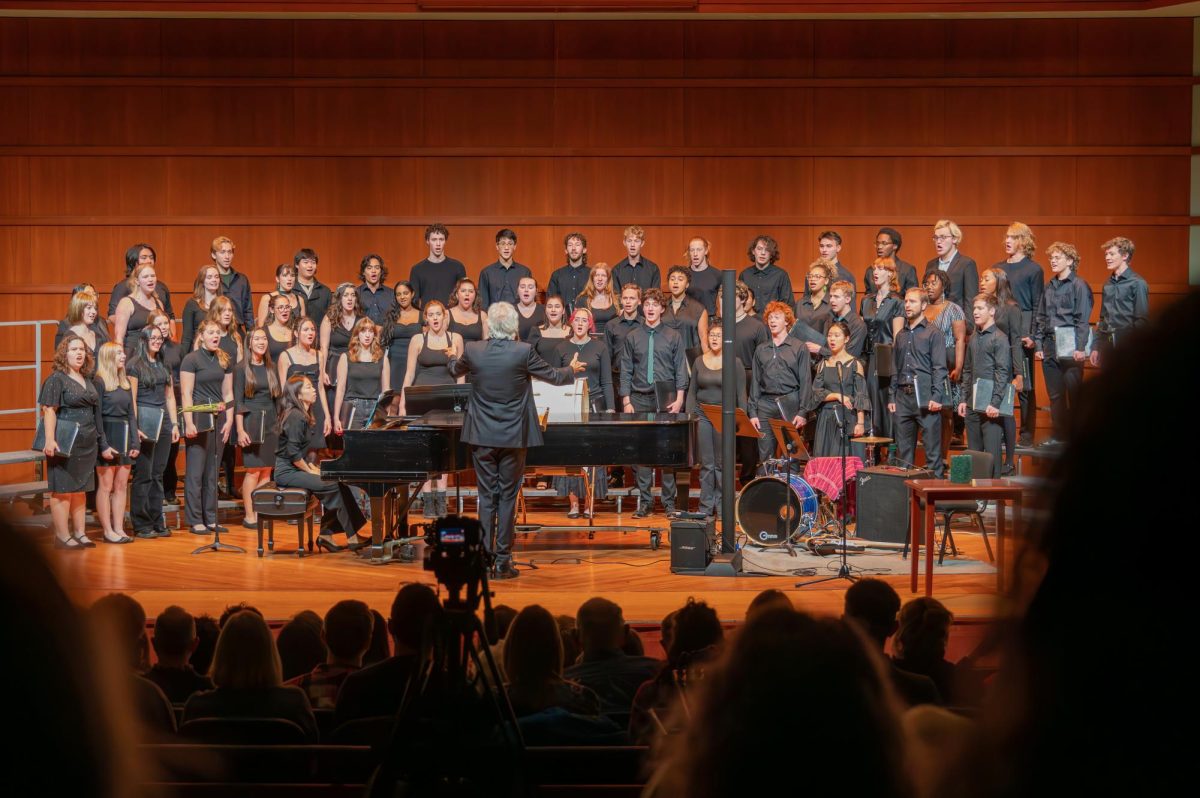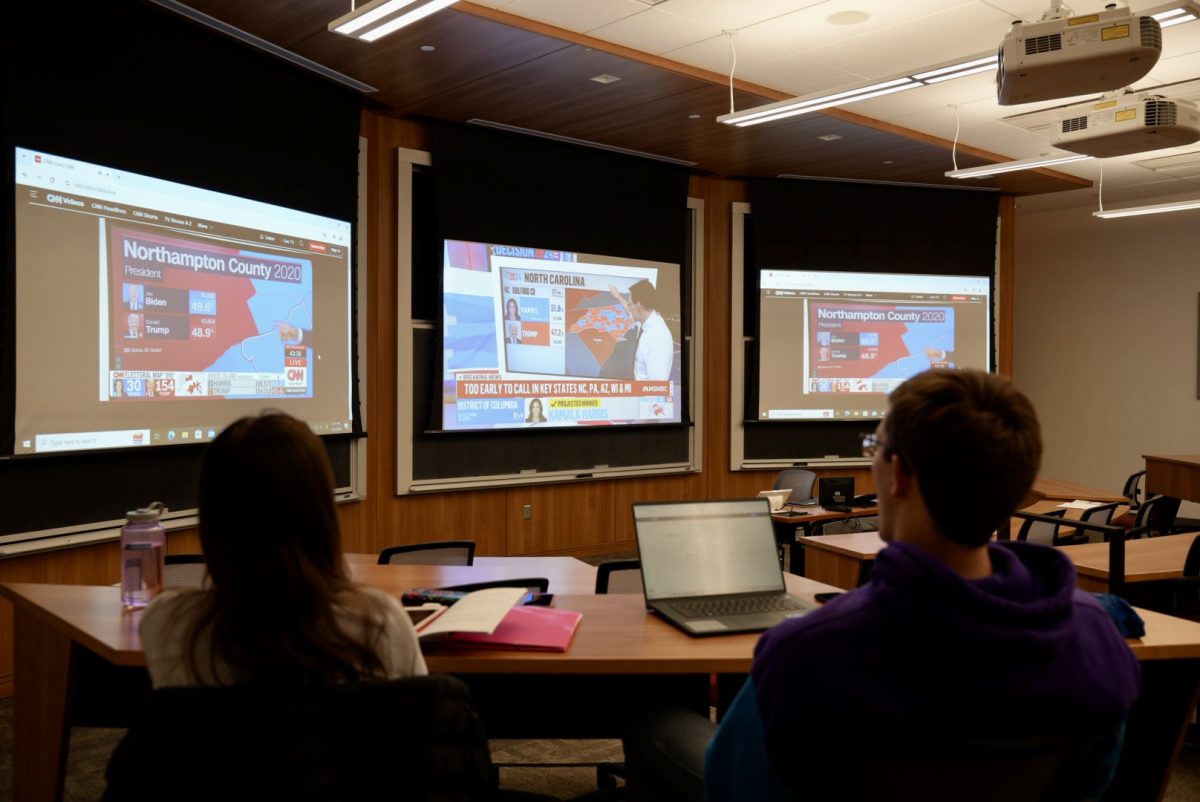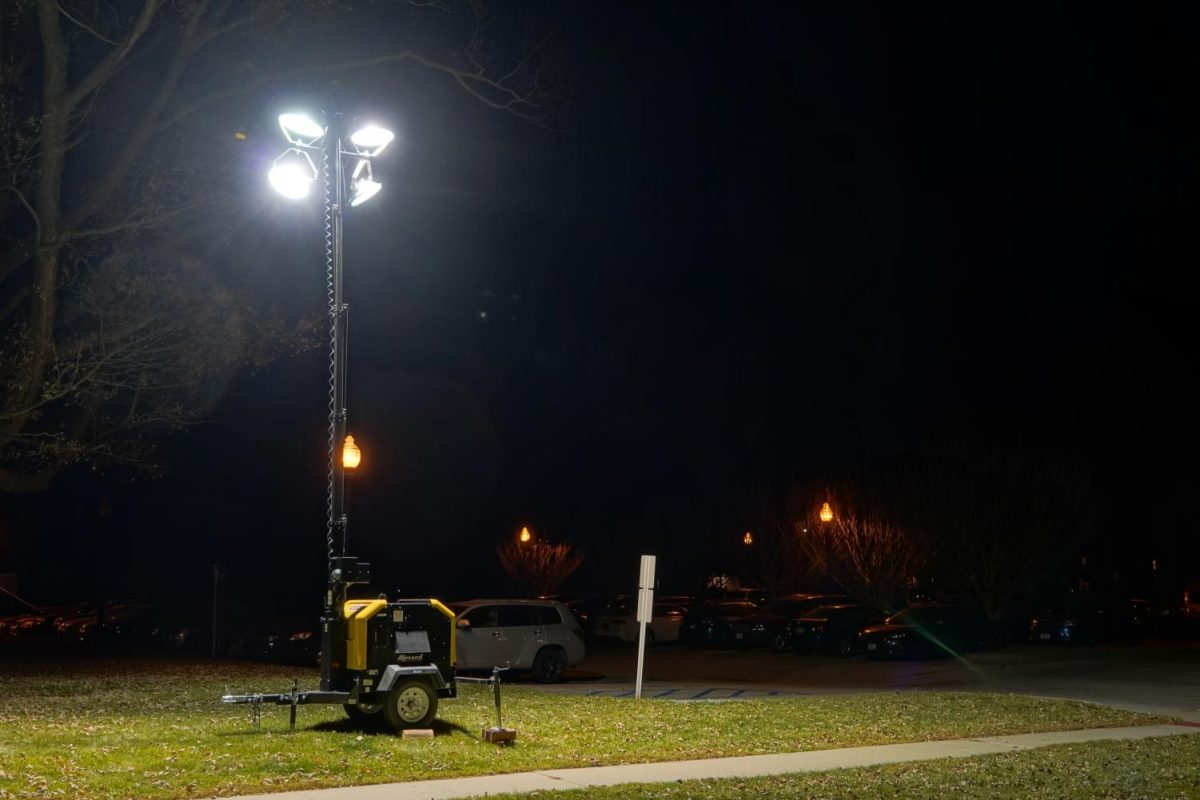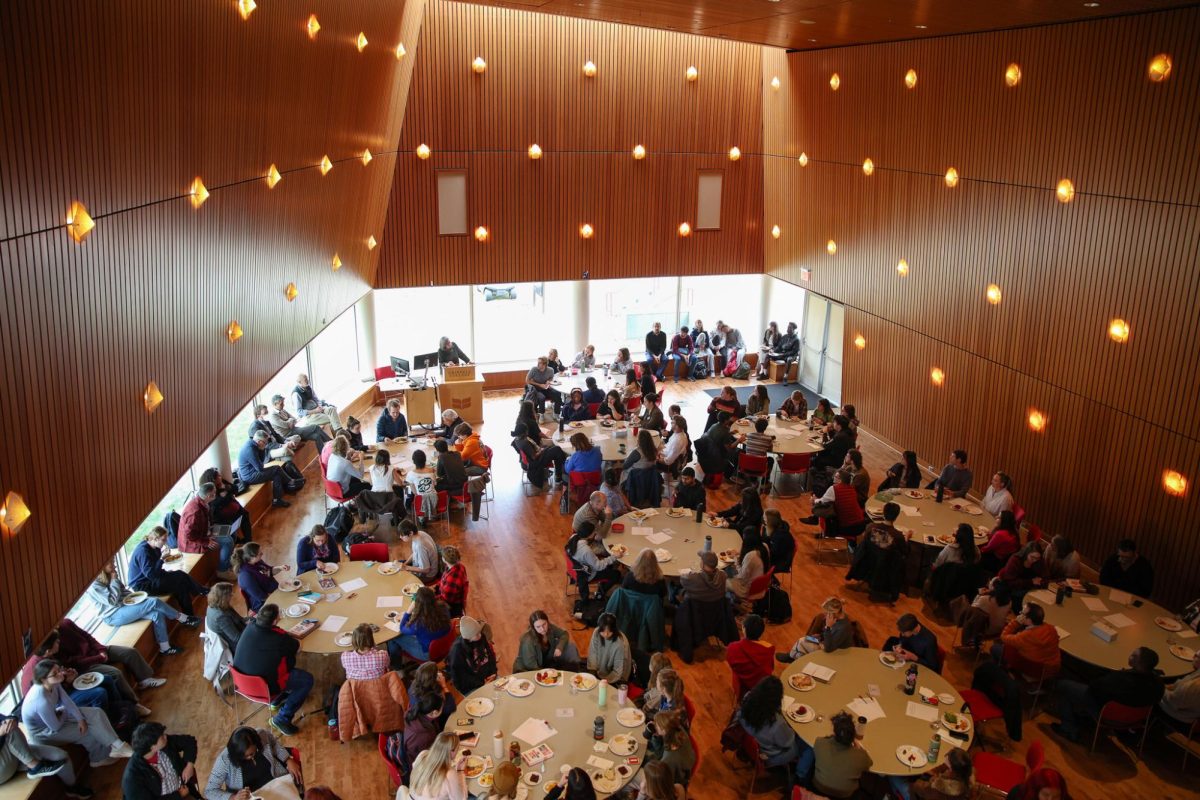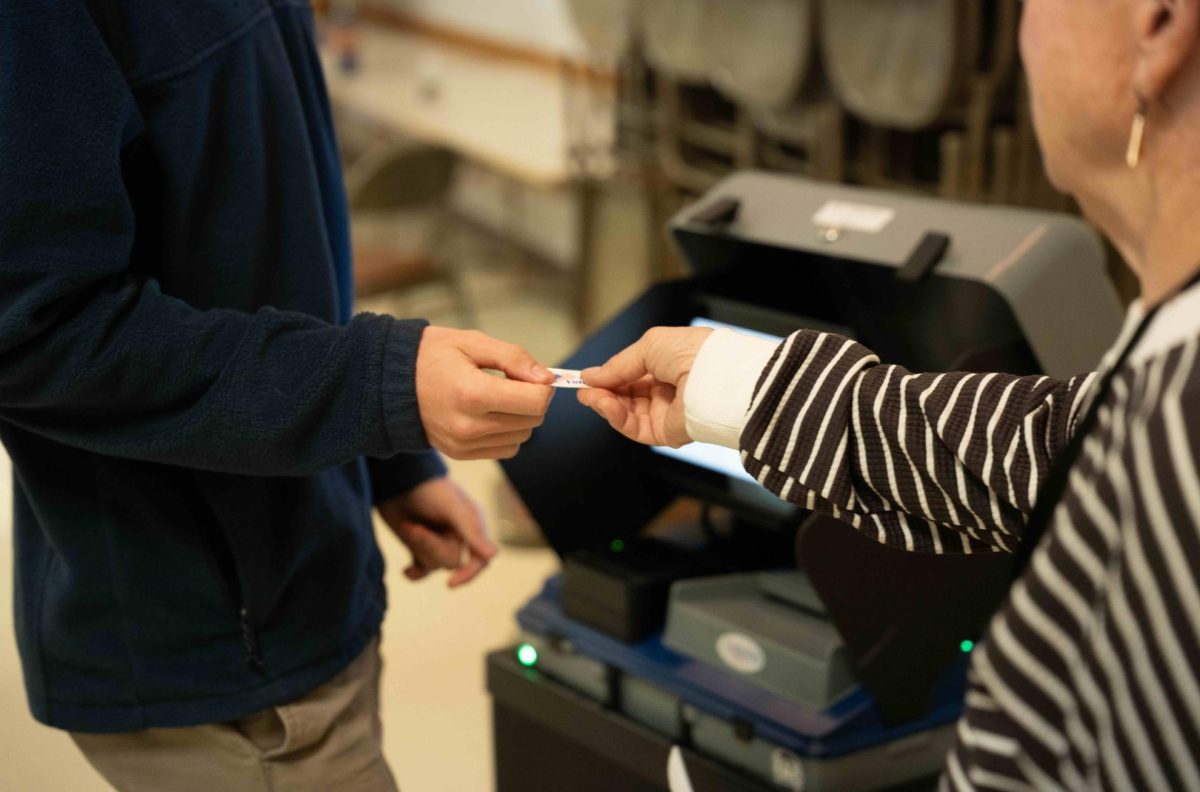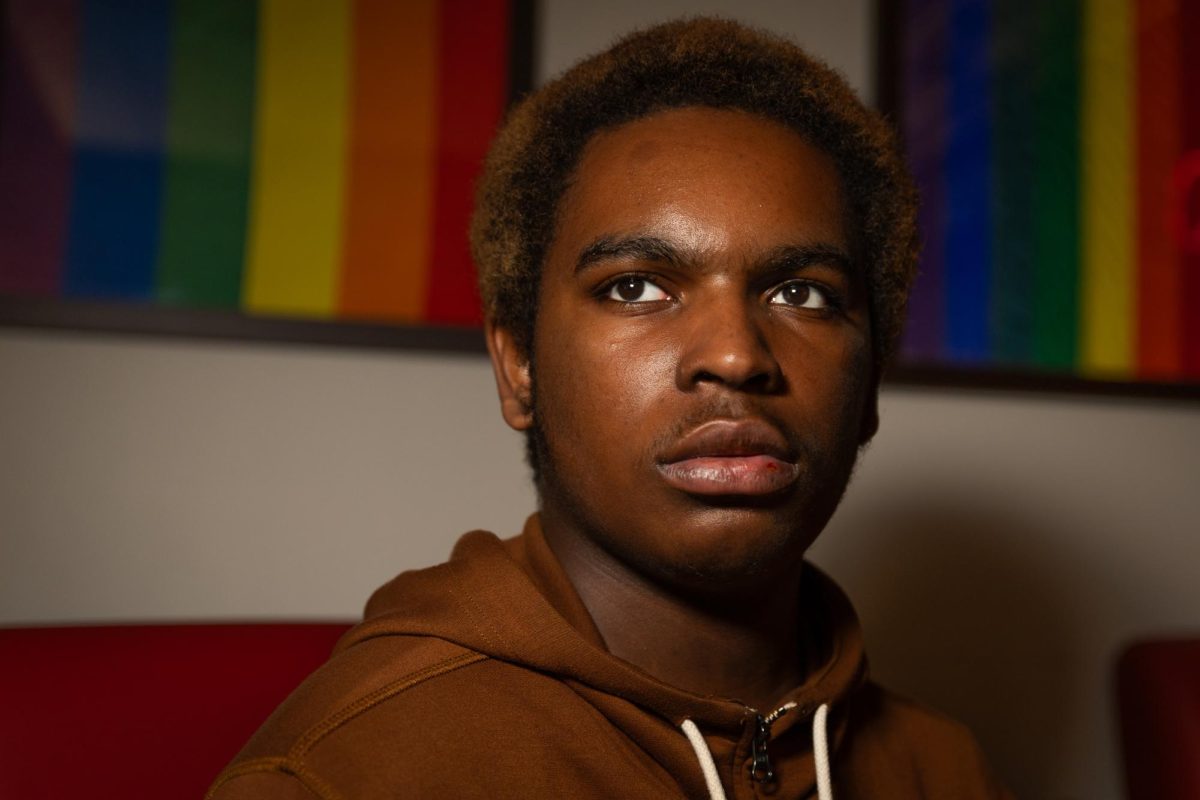The Grinnell Police Department (GPD) found that all officers on scene, including officer Ben Gray, complied with department protocols during the on-campus arrest of a Grinnell College student over Labor Day weekend. As such, Gray and the other officers involved will not face any disciplinary actions.
Police officers saw the student holding a container of beer between 6th Avenue and High Street. The student ran from the police, but was detained in the south campus loggia. Video of the arrest circulated on social media platforms, where many who saw the arrest firsthand or on video felt concerned by the rough handling of the student.
GPD’s Dennis Reilly, chief of police, outlined three types of engagements police officers have with civilians. One is voluntary, in which both the officer and the civilian agree to some type of interaction that is not necessarily related to criminal activity or requires the use of force by the officer. A voluntary interaction can take form as a conversation, or for a College-specific example, eating in the Dining Hall with students. Officers use voluntary interactions to instill trust in the communities they serve.
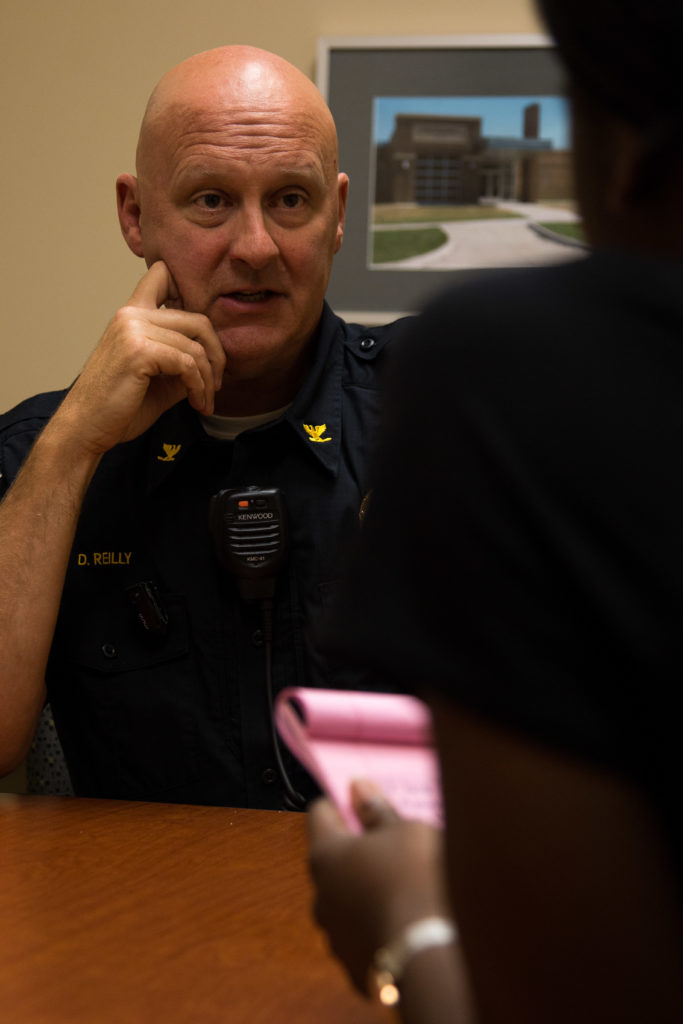
The second form of engagement is a “stop,” which occurs when an officer sees criminal or suspicious activity. The officer can use force if needed to detain the person, but the person stopped by the police has no obligation to talk to the officer. The third and last type of engagement is arrest.
“I have to make sure that I am issuing commands that are stern and clear and send a message to them that they need to go with what I’m saying,” Reilly said. “If they have a complaint or not feel that things were handled appropriately, they can always address them later on. But in that moment, if they are being stopped or detained by law enforcement, they’re required to comply. ”
Like all police departments, GPD has an internal affairs department that accepts reported complaints on alleged misconduct made by any concerned person. Depending on the nature of the complaint, it will be assigned to someone within the department to investigate and present the findings and recommendations to Chief Reilly as sustained, not sustained, confounded, exonerated or policy failure and administratively closed. When the complaints are sustained, Chief Reilly administers discipline based on several factors such as the officer’s history, productivity level and “potential for civil liability.”
“We internally initiate more internal affairs investigations every year than are initiated from the public,” Reilly said. “I think we do a very good job of policing ourselves and when a supervisor or somebody from within sees something that may not be right, certainly we look at it.”
The College can coach students, faculty and staff on the how to file a complaint regarding an officer, or can relay the concerns directly to the police. Chief Reilly and Andrea Conner, assistant dean of student affairs, believe that the police and the College have a strong relationship. Yet, the relationship does not cause the police to treat the College differently than any other local organization. The relationship allows for transparency and accountability regarding student, faculty and staff conduct and assistance.
“Quite frankly, the College could disappear tomorrow, and GPD will have plenty of things to do,” Reilley said. “The College is really not a big blip on our radar. Officers don’t look forward to an alcohol-related incident with a student and getting tied up with that when we have other things going on in town as well.”
Reilly spoke as well about the on-campus processes enacted for alcohol violations. According to Conner, since all College staff members are over 21 years old, they may handle alcohol violations in a non-punitive, internal manner. Hence, staff members will not be implicated in illegal activity or require police training to set actions considering underage alcohol use. However, the criminal process can concur with College processes.
“Our [College] processes have often been quicker because we don’t have all of the red tape, so we can usually resolve things faster so students can get back to being students,” said Sarah Moschenross, dean of students. “All of our conduct processes are meant to be educational. We don’t think a punitive system is a socially-just way in responding because it disproportionately harms students in low income brackets, and I also don’t think it’s terribly effective. Educational responses are much more effective, especially in a self-governing community.”
The College employs the nationally-recognized Brief Alcohol Screening and Intervention for College Students (BASICS) program in its dealings with alcohol use by Grinnell-affiliated individuals on and off-campus. Moschenross determines which cases are sent to which processes, depending on the level of severity. Serious cases which may require suspension or dismissal will be sent to the College Hearing Board, a committee that consists of one faculty member, one staff member and one student. Judicial Council (JudCo), an educational disciplinary committee, hears middle-level offenses where suspension is the most serious outcome. Suspension remains on the student’s transcript until the suspension expires, but the student’s eligibility for on-campus programs is removed in consequence of a suspension-level offense.
For first alcohol offenses, students go through the BASICS program. As part of the program, students follow a “readiness to change” model to determine the best resolution for themselves. Last year, the College piloted the same program for first offenses regarding marijuana, with positive results.
Second offenses might require another BASICS program, a JudCo hearing or a substance abuse recovery program. Nonetheless, everything must happen with the consent and confidence of the student.
“Students will self-select the option that’s in their best [interest] . We really try to tailor our response to the individual, to what they actually really need. If they continue to struggle, we again keep tailoring our response,” Moschenross said.


